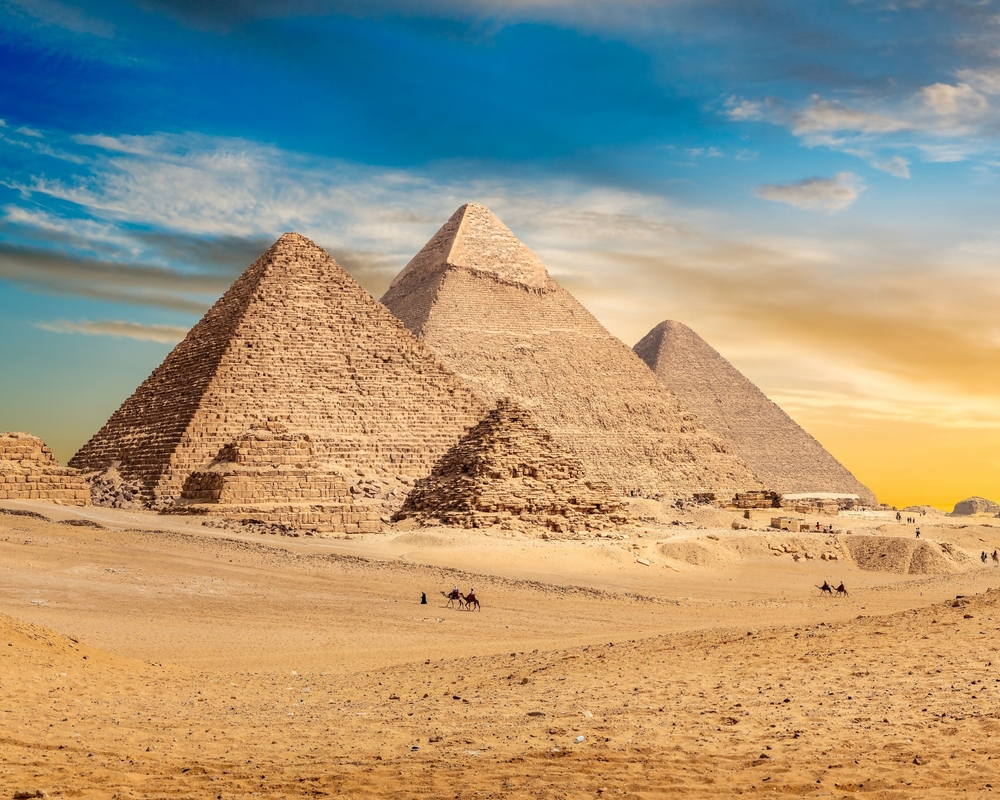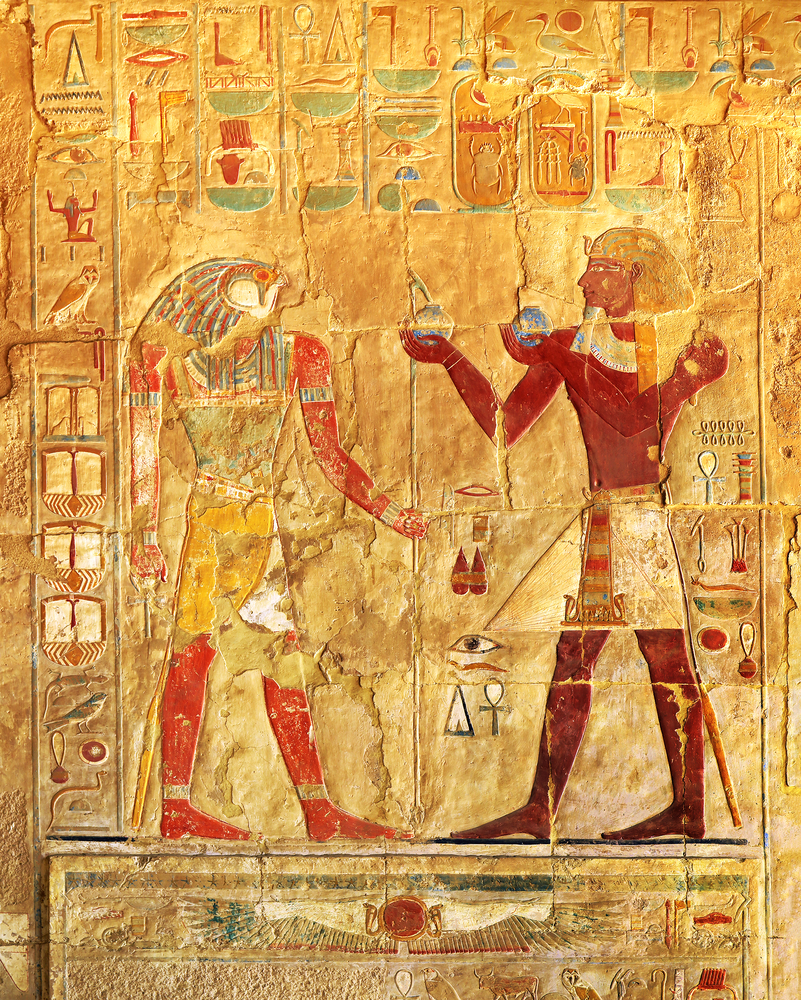Set, also known as Seth, is one of the most complex and intriguing gods in Egyptian mythology. If you’re exploring the pantheon of ancient Egyptian deities, Set's story will capture your interest with its blend of power, conflict, and symbolism. Let's dive into the myths, symbols, and powers associated with Set.
Jump to:
Who is Set, the Egyptian God?
Set, often depicted with a unique animal head known as the Set animal, is a powerful Egyptian god associated with chaos, deserts, storms, and violence. He is featured in many Egyptian mythology stories, highlighting his role as both a destroyer and a protector.
Recommended for you!
Best SellersThe Role of Set in Egyptian Myths

Set's mythology is rich with tales of rivalry and power struggles. His character is defined by jealousy, ambition, and a quest for power, which lead to dramatic and enduring conflicts with other gods. Here are some of the most notable myths involving Set and his tumultuous relationships.
The Conflict with Osiris
One of the most famous myths involving Set is his intense conflict with his brother Osiris. Set's jealousy and ambition led him to murder Osiris, dismembering his body and scattering it across Egypt. This act of betrayal marked Set as a symbol of chaos and disorder. However, his story doesn't end there. Set's rivalry extended to Osiris's son, Horus, leading to epic battles that defined much of ancient Egyptian lore.
The Contention of Horus and Set
The myth known as the Contention of Horus and Set describes the epic legal and physical battles between Set and Horus for the throne of Egypt. After Osiris's death, the gods convened to determine the rightful heir, leading to an 80-year conflict filled with trials and duels. Ultimately, Horus emerged victorious, restoring order and becoming the ruler of Egypt.
The Protection of Ra
Despite his reputation for chaos, Set also played a role in protecting Ra, the sun god, during his nightly journey through the underworld. Set would fend off the serpent Apep (Apophis), a monstrous embodiment of chaos and evil, to ensure that Ra could rise again each morning. This myth highlights Set's complex nature as both a destroyer and a protector.
Why Did Set Turn Evil?
Set's turn to malevolence is often attributed to his jealousy and desire for power. As Osiris's younger brother, Set coveted the throne of Egypt. His actions were driven by a deep-seated ambition to rule, which ultimately led to his dark deeds.
Did Anubis and Set Ever Fight?
In some versions of the myth, Set's actions also brought him into conflict with Anubis, the god of funerary rites and the afterlife. However, the relationship between Set and Anubis is complex, with varying interpretations in different texts. Anubis's role was to protect the dead and ensure their safe passage to the afterlife, often placing him at odds with Set's chaotic nature.
The Relationship Between Set and Anubis
While Set and Anubis are distinct deities, their paths often intersect in mythology. Anubis is not Set's enemy in the same way that Horus is, but their contrasting roles—order versus chaos—create a natural tension. Anubis's dedication to preserving the dead starkly contrasts with Set's association with destruction and chaos.
Powers and Symbols Associated with Set

Symbols
Symbols play a role in understanding ancient gods. For Set, the most recognisable symbol is the Set animal, an enigmatic creature often depicted with a forked tail and a curved snout, unique to Set and puzzling historians and archaeologists for centuries.
Powers
Set's powers are vast and varied, reflecting his role as a god of chaos and strength. He wielded control over storms, deserts, and warfare, and his ability to bring about destruction was both feared and respected.
- Control Over Elements: Set wielded control over storms, deserts, and warfare.
- Destruction: His primary power lay in his ability to disrupt and destroy, capable of summoning violent storms and causing chaos in the natural world.
- Protector Role: Set also protected Ra, the sun god, during his nightly journey through the underworld, highlighting his complex nature as both a destroyer and a protector.
How Strong is Set?
Set's strength was legendary. He was often depicted as immensely powerful, capable of taking on other gods in battle. His frightening presence in myths highlights his role as a god who could not be easily defeated, even by the combined forces of other deities.
Set's Relationships and Family Tree

Set's relationships and family dynamics are complex. Here are some key points about Set's family and relationships.
Siblings and Rivalries
- Osiris: Set's brother, whom he famously murdered out of jealousy and ambition. This act initiated the enduring conflict between Set and Osiris's family.
- Isis: Set's sister and Osiris's wife, who played a role in resurrecting Osiris and protecting her son Horus from Set's wrath.
- Nephthys: Another of Set's sisters, who was also his wife. Nephthys often aided her sister Isis in protecting Horus and avenging Osiris.
Marriage and Offspring
- Nephthys: Set's wife, known for her loyalty and her own complex role within the family. Despite being married to Set, Nephthys is often depicted as allied with Isis and Horus.
- Anubis: While not directly Set's son, Anubis was born to Nephthys and Osiris, adding another layer to the complex family dynamics. Anubis's role in funerary rites often brought him into indirect conflict with Set.
Rivals and Enemies
- Horus: The son of Osiris and Isis, Horus is Set's primary rival. Their legendary battles for the throne of Egypt are central to many myths, symbolising the struggle between order and chaos.
- Ra: While Set protected Ra from Apophis in the underworld, their relationship was complicated. Set's chaotic nature contrasted sharply with Ra's embodiment of order and creation.
Allies and Ambiguous Relationships
- Thoth: The god of wisdom and writing, Thoth often played the role of mediator in disputes between Set and Horus, highlighting the importance of balance and justice.
- Apep (Apophis): Though an enemy rather than an ally, Set's nightly battles with Apep to protect Ra underscored his role as a necessary force against greater evils, adding depth to his character as both protector and antagonist.
Recommended for you!
Best SellersFrequently Asked Questions About Set
Why Did Set Hate Osiris?
Set's hatred for Osiris stemmed from his envy and desire for the throne. Osiris was beloved by the people and ruled with fairness and justice, which further fueled Set's resentment. This deep animosity culminated in Set's treacherous act of murdering Osiris, setting off a chain of events that would define Egyptian mythology.
Did Set Take Horus' Eyes?
In their epic battles, Set and Horus inflicted severe injuries on each other. One of the most famous incidents is when Set gouged out Horus's eye. However, this was not the end for Horus; he was healed by the goddess Hathor, and his restored eye became a powerful symbol of protection and healing, known as the Eye of Horus.
Why Did Seth Sleep with Horus?
In a particularly intriguing and complex myth, Set attempts to dominate Horus by seducing him. This tale is filled with symbolic layers, representing the struggle for power and the attempt to humiliate and control. However, Horus ultimately turns the tables on Set, showcasing his resilience and cunning.
Is Set Evil or Good?
Set embodies both good and evil traits. While he is the god of chaos and destruction, he also has moments where he protects and aids other gods. This duality makes Set a compelling figure, representing the balance between order and disorder.
Was Osiris in Love with Set?
Traditional myths do not indicate that Osiris harboured romantic feelings for Set. Their relationship was defined by familial ties and the ensuing conflict. Osiris's role as a just ruler starkly contrasts with Set's chaotic ambitions, creating an eternal rivalry rather than a romantic connection.
What is the Religion of Set?
Set was worshipped in various temples across Egypt, particularly in regions like Ombos (now Kom Ombo) and the desert oases. His worship included rituals to appease him and harness his destructive powers for protection against chaos and evil.
Study Egyptian Mythology for £29
For those eager to dive deeper into the rich world of Egyptian mythology and learn more about gods like Set, Centre of Excellence offers an engaging Egyptian Mythology Diploma Course. Explore the myths, symbols, and powers of the gods in more detail and discover how these ancient stories continue to captivate us today. Enrol now and get the course for a discounted price of £29













